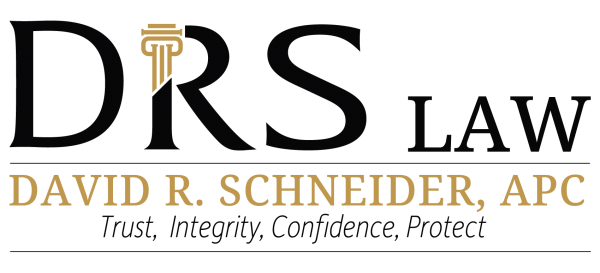Estate planning is akin to drafting the script of your legacy’s story. A pivotal chapter in this narrative involves the judicious use of trusts. Here, we’ll uncover the tools behind trusts, their pivotal role in securing one’s legacy and the other tools which are used to complement the Estate Plan.
The Basics of Trusts
A trust is a separate legal entity that allows an individual or individuals, called the Settlor or Grantor, to transfer ownership of assets to the trust; and has a Trustee(s) to manage the assets and distribute them to the Beneficiaries of the trust. The trust’s essence is to ensure that your wishes are executed accurately, at all times, even when you’re not there to oversee them.
Key Players
Settlor/Grantor: The persons creating the trust – you.
Trustee: The persons responsible for managing the trust assets – you.
Beneficiary: The recipients of the trust’s assets – you.
In all three instances, the key player is you. This allows you to retain complete use, control and enjoyment of the assets you transfer to the trust, ensuring that you make all of the decisions, until a time when you can no longer make those decisions such as incapacity or death.
Why Create a Trust?
I am often asked, “If my spouse and I are all three persons, why do this in the first place?” Life is of course unpredictable but it is also finite. While most people are aware of this chilling concept, one in three persons aged 68 or older will have a significant period of incapacity before the end of the game. When presented with the option of a plan that provides you 100% use, control, value and enjoyment; then insures your assets will be protected by a person whom you trust to act in your best interests; and then provides an orderly method of distributing the assets upon your passing with the least amount of waste in terms of time and money – this becomes the obvious choice for you and your family.
Types of Trusts
Revocable Trust: can be modified or revoked during the grantor’s lifetime. The Revocable Trust is the most common of the estate planning tools and presents the most flexibility, at the lowest cost to you. As the dynamics of your life change, you amend the trust to fit the changing circumstances.
Irrevocable Trust: cannot be changed after it’s created without the beneficiaries’ consent. This tool is often reserved for very large estates which would likely have a significant estate tax burden. Another example would be a Charitable Remainder Trust where a portion goes to beneficiaries and the remainder to charity. This can provide significant Tax Benefits for larger estates and potentially significant tax deductions when structured correctly.
Core Tools Used in Crafting a Complete Estate Plan
1. Pour-over Wills
Mechanism: If assets are forgotten outside the trust, a pour-over will ensure they “pour over” into the trust upon death. Some assets will not be titled in the name of the trust intentionally such as cars, boats, and small planes. These assets often change and also involve working through agencies such as the DMV which can become burdensome.
Benefits: Since these assets are typically less than the threshold requiring a probate proceeding the Will names the trust as the beneficiary so the smaller assets will pass to the trust and still follow the terms of the trust. Perfect for assets acquired late in life, ensuring nothing is left out of your trust.
2. Durable Power of Attorney
Definition: A legal document allowing someone to act on your behalf if you’re incapacitated. This is the vehicle used for financial assets which the federal government does not allow to be titled to the trust, e.g., IRA’s and 401k’s.
Complement to Trust: It can cover financial decisions not specified in the trust, by using the same trusted persons nominated as your successor trustees to be your agents under the power of attorney assuring a smooth management of assets during your incapacity.
3. Advance Health Care Directives
Role: Similar to the Durable Power of Attorney, above, this assigns someone to make medical decisions for you during a period of incapacity.
Essentiality: During a period of incapacity, you are not capable of making an informed decision. This ensures someone who understands your feelings, preferences is in place to make those decisions for you, the decisions you can no longer make for yourself. This is especially vital if you have strong feelings about life-saving treatments or end-of-life care.
Other Advanced Trust Tools for High-Net-Worth Individuals
- Family Limited Partnerships (FLPs) & Family Limited Liability Companies (LLCs). These tools segregate family assets, potentially protecting them from creditors and they can play a crucial role in minimizing estate taxes.
- Qualified Personal Residence Trusts (QPRTs) that can hold a personal residence, allowing homeowners to potentially transfer it at a reduced tax cost. This is used for homeowners expecting their property’s value to increase significantly.
- Generation-Skipping trusts allow the grantor to transfer a significant amount of money tax-free to beneficiaries multiple generations down and can avoid multiple rounds of estate taxes.
The Role of a Trust in Tax Planning
Trusts aren’t just about directing assets; they’re vital tax planning tools. With the correct trust structure, estate taxes can be drastically reduced. However, with ever-changing tax laws, the need for regular reviews and timely updates is paramount.
Trust Maintenance and Monitoring
The trust’s journey doesn’t end after its creation. Regular updates are essential, and the trustee plays a vital role in ensuring it remains effective. Moreover, professional consultations can ensure the trust aligns with the evolving legal landscape.
Don’t Leave Your Legacy to Chance
Your legacy deserves more than just a simple will; it demands the finesse of a well-structured trust. Let’s not leave our legacy to chance; take charge by diving deep into the world of trusts.
Ready to script your legacy? Schedule a free consultation with the expertise of David R. Schneider at 805-374-8777 or dschneider@drs-law.com. We look forward to hearing from you and helping you set up your comprehensive estate plan. He can help you understand the elements that go into creating your estate plan to secure your family’s future.
You can learn more about the Law Offices of David R. Schneider and read past blog posts here.

